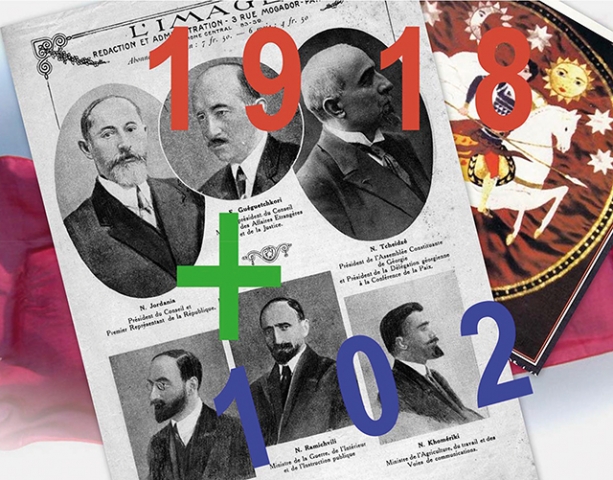Redjeb Jordania, Son of Noe, on Georgia’s Independence Day
My fellow Georgians:
On the occasion of the 102nd anniversary of our declaration of independence, I would like to congratulate all Georgians and the Georgian institutions for the great progress made in the past 20 years to wean Georgia once and for all from the Soviet ideology, for the improvements in all phases of everyday living, for the promotion of international tourism, and for the successful efforts to control the spread of the coronavirus that created such misery and disruptions throughout the world.
At last count, in our country corona cases numbered 723, and the deaths just 12: much better than in neighboring Armenia and Azerbaijan, and immensely better than Europe and the United States.
With this low count, it is more than probable that this year’s tourist season will be relatively successful, since Georgia has been rated in many publications as one of the most interesting countries to visit, provided, of course, that corona does not make a come-back.
The virus took the whole world by surprise: nothing like that had happened in a long time, since 1918, in fact, when the Spanish Flu pandemic swept the globe.
That was the year of the foundation of our modern Georgia, yet the documents of the time do not even mention the plague. In general, it seems that the Spanish Flu, which killed an estimated 50 million worldwide, did not affect our country, or, if it did, it was in such small numbers that it was not recognized as such, leaving the Georgians to enjoy their newfound freedom,
And thus, for the sake of nostalgia, I would like to share with you a brief description of life in Tbilisi in the times of Noe Jordania:
“The Civil War, a conflagration extending over thousands of miles, had cut Tiflis off from Moscow completely. An independent republic had sprung up in Georgia, led by the Liberal Menshevik Noe Jordania. Iniquity raged everywhere, famine and pestilence reigned, but on the other side of the peaks of the Caucasus, free Georgians, together with Armenians, Persians, Russians, Greeks, and Jews, sat beneath chestnut trees, drinking wine and Lagidze mint, and eating fresh lavash bread; radishes, herbs, shashlik that wasn’t bad for the times, and, as always, the exceptional satsivi chicken with nuts lobio beans and tskhinvali fish.
“Everything was so wonderful in Tiflis during that three-year springtime, Noah’s ark Jordania floated like a prospering block of ice in a sea of blood and muck, in the sea of the typhus epidemic of the Civil War, and looked as though it might sink or split at any minute; maybe it was wonderful precisely because it was so fragile; all present felt as though their heads were spinning.
“By the end of 1920, all of this Silver Age that had been transplanted to the south had vanished, perhaps flown back to its sources, the Greek islands. The Georgian Republic was in its death throes. In 1921 the Red Army burst in, freedom came to an end…” [Reprinted from Generations of Winter by Vassyil Aksyonov, (1995 edition, pp. 246-249)]
We regained our freedom 70 years later, in 1990. Let us continue free and prosperous forever.
Gaomardjos Sakhartvelo!
Redjeb Jordania
East Hampton NY, 24 May 2020












